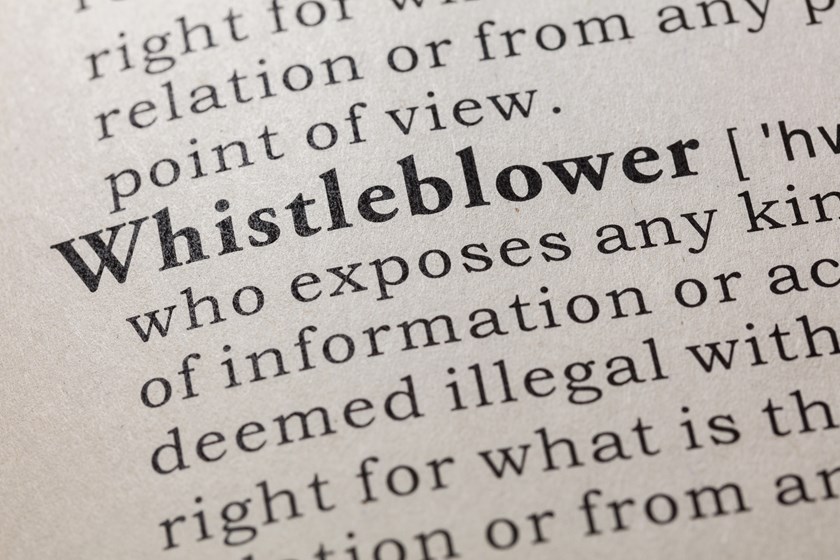Employee exits: when can employers search personal devices or private messages?
Blog

When dealing with breaches of restrictive covenants, team moves or misuse of confidential information, there are often occasions where the employer will want to be able to conduct a thorough search of the employee's (or former employee’s) personal device(s) or messages held on their work account. This might be during pre-action correspondence, litigation, when negotiating a settlement agreement, or preparing an affidavit to establish whether unlawful conduct has taken place and, if so, the nature of such unlawful conduct. A balance must be struck when carrying out such searches, given that this will likely be considered a highly intrusive exercise from the perspective of the employee.
In this blog, we will describe two key cases discussing access to employee’s personal devices. While neither case involves restrictive covenants, both provide useful learning points relevant to these issues in an employee competition sphere.
Phones 4U Ltd (in administration) v EE Ltd and others [2021] EWCA Civ 116
By way of summary, the Claimant in this case was an intermediary offering mobile phone contracts with the eight Defendants (well-known mobile network operators). Between 2013 and 2014 the Defendants’ contracts with the Claimant were either terminated or not renewed. The Claimant argued this was arranged and was “anti-competitive” in breach of UK and EU law.
At a case management hearing, the High Court ordered that the Defendants write to specific individuals requesting that they provide their personal devices to e-disclosure providers to search for work-related communications. Such communications would then be passed to the Defendants for further review. The e-disclosure providers were required not to disclose any irrelevant material and subsequently return the devices.
The Defendants appealed against this order arguing, among other things, that:
- The Court did not have jurisdiction to make this order, and
- The order constituted disproportionate interference with the individuals’ right to private life under Article 8 of the European Convention on Human Rights (ECHR).
The Court of Appeal rejected these arguments.
The Court held that it did indeed have the necessary jurisdiction, holding that the existence of sensitive and irrelevant material on a device did not preclude the device from being searched for material relevant to the claim.
Secondly, the Court was keen to stress the proportionality of this measure, accepting that the searches would constitute an interference on the Article 8 (right to private and family life) rights of the individuals, but that this interference was proportionate. It had safeguards through the e-disclosure provider’s undertakings and the individuals were not obliged to respond.
In essence, the Court indicated in this case that it was not open to individuals to prevent their devices being examined by simply arguing that the device was a personal one. The Court noted that those wanting to hide unlawful collusive activity may refrain from using their work devices, and thus it is sometimes necessary to examine personal ones as well. This makes sense: employees planning a team move or copying client lists are unlikely to do it from highly regulated work IT servers.
FKJ v RVT and Others [2023] EWHC 3 (KB): the risks of acting nefariously
This case, which had a very different outcome, involved a claim for misuse of private information. It highlights that employers do not have a carte blanche to examine private communications in an unrestricted way, purely because they believe there has been wrongdoing.
The Claimant in this claim (FKJ) was a junior solicitor at the Defendant’s (RVT) firm. She was dismissed in December 2017 for falsifying time sheet entries. FKJ then brought unsuccessful claims in the Employment Tribunal against her dismissal. As part of those proceedings the Defendant delivered up approximately 80,000 of the Claimant’s personal WhatsApp messages. These included two entire logs of private messages between the Claimant and her husband and her best friend, spanning an extended period of time that went beyond her dismissal.
The Claimant alleged the Defendant had hacked into her WhatsApp messages by setting up “WhatsApp Web” using the Claimant’s smartphone and had therefore captured the entirety of her available messages. The Defendant denied this, claiming that the pre-dismissal messages were found on her work laptop and that the subsequent messages were provided by an anonymous letter.
FKJ brought a claim for misuse of private information in the High Court. The Defendant brought an application to strike out the claim arguing, among other things:
- It had no prospect of success as the Claimant could not have a reasonable expectation of privacy in the messages (a necessary component of a misuse of private information claim) as they were saved onto her work laptop during working hours,
- That the claim revealed no substantial wrongdoing and that the costs of litigation were disproportionate, or
- The claim was an abuse of process as the Claimant should have raised her objections as part of the Employment Tribunal proceedings.
The Court ruled against the Defendant, rejecting all of the Defendant's contentions. The Court held that it “could not be seriously contested” that the Claimant had a reasonable expectation of privacy regarding the messages as they had been intercepted. In any event, the judge noted that personal information on a work device was a common scenario and did not necessarily mean the messages were no longer private in nature.
Further, the Court held that the access by the Defendant of several years of personal communications by the Claimant was a very severe breach of her private information. There had been no attempt to place restrictions on which private messages were searched and reviewed.
While this decision is an interim one made without examination, this claim highlights that personal information downloaded onto a work laptop does not lose its private character. It should be noted also that the “misuse” in this claim was not about deploying the personal messages before the Employment Tribunal; rather, the key element here was the interception and retention of personal messages without notifying the Claimant. Employers should therefore be very cautious when making use of an employee’s personal communications in any employment investigation.
Employee competition litigation and the evidential role of personal devices: top tips
Phones4U confirms that an employee’s personal device could be relevant to a legal claim, and it is open to an employer to request that such devices be searched to assist in proving a case of post-termination restrictions. FKJ does not strictly restrict that principle: the documents in that claim could well have been relevant. However, FKJ demonstrates that it is not open to an employer to treat obviously personal employee data, even on a work device, as its own to examine without restriction.
Top tips for employers
- Consider your IT policy, monitor employees lawfully: information security should be made clear to all employees in your policies and practices. Employees, regardless of seniority, should be held accountable where appropriate. The need for effective monitoring tools is likely to become even more important if the Government’s proposed three-month limit on non-compete clauses comes into force (for more information please see Anna Birtwistle and Amy Wren’s previous blog here). This could help to create an environment in which a departing employee is less likely to "accidentally" retain confidential information where the employee is aware that this will be discovered if sent through work channels.
- Don’t delay: remember, if obviously personal information relating to third parties (eg clients or other employees) is found to have been disseminated from an employee’s old work device it is important to act quickly to stop that information being disseminated more widely.
- Remember, former employees will likely push back on examination of personal devices: examination should not be a fishing expedition. An employer should ensure that there are appropriate safeguards in place and that any applications made to a Court for an order allowing such an examination are accompanied by evidence demonstrating that there is likely to be relevant information on the device in question. This should not be speculative.
- Don’t argue the inarguable: while executive exits can become emotive, particularly in circumstances where there is a threat to your business, conducting an unnecessarily aggressive litigation strategy may achieve futile results, drive up costs and diminish credibility in the eyes of the Court at the final hearing.
Top Tips for Employees
- Prioritise security over convenience: perhaps an obvious point, but do not send work-related information to a personal device at any point. If you do not have separate work and personal devices, do as much as possible to keep your personal and work information separate, potentially through separate accounts or filing. When negotiating your exit, be open and honest with your employer and/or legal advisor as to what retained information there is so that this can returned/deleted on exit.
- Think before you send: messages sent from personal devices to colleagues may become disclosable if they relate to the issues at hand. Most often, we see this in team move cases. Remember, if in doubt do not write it down.
For both employees and employers, it is best to seek legal advice early. Cases of this kind need to operate at pace, particularly if an employer is seeking to enforce an interim injunction to either prevent the use of confidential information or put the employee on notice not to delete any potentially relevant information.
This publication is a general summary of the law. It should not replace legal advice tailored to your specific circumstances.
© Farrer & Co LLP, June 2023







